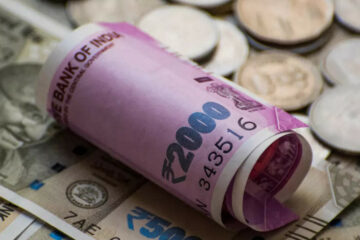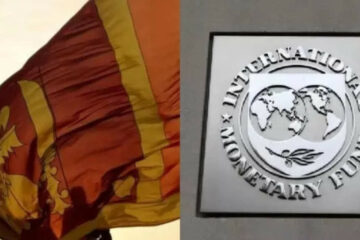[ad_1]
Tamanna Inamdar: What a ride it has been. Right at the inception the airline lost its co-promoter and you were also in a very tough space. What has this five-month been like?
Vinay Dube: It has been a roller coaster of emotions, I mean clearly you touched upon Mr Jhunjhunwala and his very sad and untimely demise, I mean that affected us personally but thanks to him we are well set up and well capitalised. We have got a good start and a good base and the best thing that we can do to honour his memory is really to run a good and world-class airline, which is what we have endeavoured to do in these last few months. It has been absolutely amazing not just for us but for the entire 1300 plus employee base of Akasa. We are the newest, freshest airline in India and serving close to half a million passengers now.
Tamanna Inamdar: I think one of the big questions that you have got because of the untimely demise of Mr Jhunjhunwala is how well capitalized you are and you have always said that we have the money to hit the targets we have. Is that a USP for passengers because Indian passengers notoriously are looking for the best price at the most convenient time.
Belson Coutinho: Our brand apart from being warm, reliable and efficient also promises to be the most dependable and affordable airline. More so, we will continue to strive to create an environment where affordability is equally important as much as service. Hence we will ensure competitive pricing such that consumers from across the country fly with us.
Tamanna Inamdar: Talking about what the acceptance has been for your airline, as far as I know and correct me if I am wrong you have come to about 1% market share in five months, your passenger load factor is about 80 odd percent?
Vinay Dube: That is correct.
Tamanna Inamdar: And a very interesting strategy where you have made Bengaluru your hub. Why was that decision made? What is the plan there?
Vinay Dube: So not to correct you but we have been operating for four months as our first flight was on the 7th of August and the customer reception has been fantastic. If you look at our statistics over the last four months we think we are on time compared to any carrier in India.
Our thought is that once you get the reliability and efficiency then what separates us is the kindness, is the ability to delight our customers whether it is USB ports that we offer, a seat cushion, a newer and fresher cabin, more leg room, etc that is part of the consumer experience that we are providing our customers that will separate us from everyone else.
Tamanna Inamdar: And the point about why Bengaluru? So, it seems you did not want to jump into the big game which in Indian domestic aviation is Mumbai-Delhi- the lion’s share.
Vinay Dube: Yes it is but it is a little more complex than that. So I will tell you when creating a network there are some complexities that the consumers do not see and you have to be a bit of a specialist to see. One of them is slots and people understand slot constraints generally speaking but of the big cities that you would want to establish as a base, Bengaluru today is the least slot constraint. Delhi over time will have many more slots to give but today there is a lot of terminal and runway work that is being done and so over a period of time and by the way it is not long maybe six months, eight months they will have a much more unconstrained environment and that is part of the reason why our foray into Delhi is a bit delayed.
Tamanna Inamdar: Of course, Bengaluru is a fabulous choice but what I was trying to understand in terms of strategy it seems like a very well thought out strategy to not jump into where your most dominant player already is and find a niche for yourself. Is that the plan or is the plan ultimately to compete with the 50% player?
Vinay Dube: Yes so I will tell you it is a bit of a both and the reason nobody wants to poke the bear and we have no intention of poking any bear or the 800-pound gorilla or the largest competitor so absolutely, if we can create a niche for ourselves that would be the wise and smart decision but at the same time you cannot run an airline saying we are going to bypass all competition, you have to have an ability should you be confronted to take competition head on. So just to give you a sense that we are not deliberately going to poke any bear, we don’t have masochistic tendencies but at the same time we are not building an airline that is going to skirt competition.
Tamanna Inamdar: So in the context of Indian aviation, what has been very tough is prices of ATF, I think they have jumped some 60 odd percent in the last year, rupee has depreciated and I know you do not want to forecast where it will go but it is tough that is why Indian aviation is non-profitable. Hence amid such a background, when do you think you will turn profitable, is that on the table right now or is it just about spreading your footprint?
Vinay Dube: Spreading our footprint is one of them but creating a long term healthy durable business that is our goal, we are just getting started on it. In terms of fuel, we have got the most fuel efficient aircraft in global aviation. This we have opted for, to structure ourselves for the long run.
Tamanna Inamdar: Both of you are aviation veterans but you are in this day and age that if a customer is not happy with their experience, they are going to get on social media e-juggling, tag everyone, put pictures and then you have to claw your way back. How are you dealing with that and have you had any of those nightmares yet?
Belson Coutinho: The good part about the way we approach this, is we are extremely focussed in listening to what our customers are saying. We have a 24×7 team that just listens to what people are talking through social media, which is one of the most predominant channels, using which people write to us and share feedback. There is not a single day where we do not look at data not just from a feedback or a complaint or appreciation that comes in but the trends that are coming through and we make sure that every customer feedback is responded to.
Tamanna Inamdar: What is the number one grouse?
Belson Coutinho: So initially when we started we had to get our systems and processes right, we had new staff that came on board, everybody was getting settled with the system usage and how to service customer, new service standards those were sort of teething issues that we saw in initial stages but those were not really complains. We have settled down very well. In fact, as we have started observing, we have realised that we can add some more standards in our training processes, which we did instantly so it is all about learning as we move forward, listening to the feedback and start taking sort of course corrections if we may.
Tamanna Inamdar: You have been saying that the USP of Akasa is that you have tried to move away from the regular airline fare, how are you doing that?
Vinay Dube: Yes, our thought was that if you pre-order a meal there is no reason why it actually cannot be from a wide variety of choices and why it cannot be tasty and appetising. So we have partnered with the premier flight kitchen to offer a variety of at least I believe to be really tasty good meals.
Tamanna Inamdar: I thought what was interesting is that you are offering salads, usually you see a cold sandwich or something very dry because it travels more easily, why this differentiator at an LCC kind of pricing?
Belson Coutinho: I think the focus for us was to cater to various taste buds and healthy options is the norm now . There are a lot of consumers who opt for salads, for healthy meals and that was one of the reasons that we have catered to various segments.
Tamanna Inamdar: A low cost carrier functions because they trim the fat everywhere. So how does this work with pricing and also your overview on where ticket prices are going, we have seen a surge recently, are we going to see more of that?
Vinay Dube: I would not answer that as these are things that are very difficult to predict but in terms of meals whoever wants a meal pays for a meal and the choice is there. They can get a salad and pay X, they can get a tin of popcorn and pay Y. They can get a cup of coffee or tea or a juice and so it is up to them what they choose.
Tamanna Inamdar: There was a phase in the industry where there was cut throat competitive pricing and I think you have seen that first time. This is what has sunk some airlines, do you think that is behind the industry now or is another bout to come?
Vinay Dube: Airlines can have differentiated pricing if they have a differentiated product but the differentiation on their pricing has to be commensurate with the underlying differentiated cost structure. So some airlines can command a 10% higher price because maybe they offer something to the consumer that is 10% better but if those same airlines have a 30% higher cost they are going to go out of business.
So it is not just price alone and again I would invite you to look at what is happening in more mature aviation markets like the US and the Europe where you have differentiated pricing and you have differentiated cost structures but there was a decade between 2010 and 2019 where US carriers made money hand over fist in a mature aviation environment with differentiated cost structures that is because the differentiated pricing was in line with the differentiated cost structures. So airlines go out of business when they can get away by charging 10% more but their costs are 40% higher.
Tamanna Inamdar: So when is Akasa going to be in your estimate in the black or are you there?
Vinay Dube: That is tough because there is in the black as far as P&L is concerned and there is in the black as far as cash flow is concerned and in aviation these are incongruous, they do not have to happen at the same time. So we are not going to give away our trade secrets, this is something that we guard very-very closely and not going to make public predictions given that we are a private company and can get away with holding these close to our chest.
But I will say there is nothing to worry about. The way we structure the company, the focus we have on our cost structure, we are well capitalised.
Tamanna Inamdar: You are saying you can be profitable in this market?
Vinay Dube: In the Indian market?
Tamanna Inamdar: Yes.
Vinay Dube: Absolutely. I mean why… look none of us neither Belson or I, our other co-founders are sort of serial entrepreneurs that say we have to start an airline, I mean absolutely not, we are career professionals, we only start the airline, if we think we are going to be around long term and if we have confidence that we can create a long term business, otherwise why do you want the hassle of starting something if you think you are going to be bankrupt three years or five years or ten years from now so when you ask the question do you think we can be around? 100%, otherwise we would not have started Akasa.
Tamanna Inamdar: What is the timeline to start international routes, the regulatory parameters you have to 20 aircraft at least?
Vinay Dube: That is correct.
Tamanna Inamdar: Do you have a timeline in mind?
Vinay Dube: Yes it is the second half of 2023 so our 20th aircraft will be delivered by April of next year. It will take us little while after that to make plans and preparations and get out 21st aircraft and so we have set towards the end of 2023 we intend on flying internationally.
Tamanna Inamdar: And you mentioned that you are private so you do not have to answer all the questions, any plans to change that and go public?
Vinay Dube: To go public yes that is the intention and so that is definitely part of the plan but the timing is not something that we can articulate at this point, it is a few years down the road is all I can say. We have to build the track record before it makes sense for us to go public and that is going to take a little while.
(Disclaimer: Recommendations, suggestions, views and opinions given by the experts are their own. These do not represent the views of Economic Times)
[ad_2]


